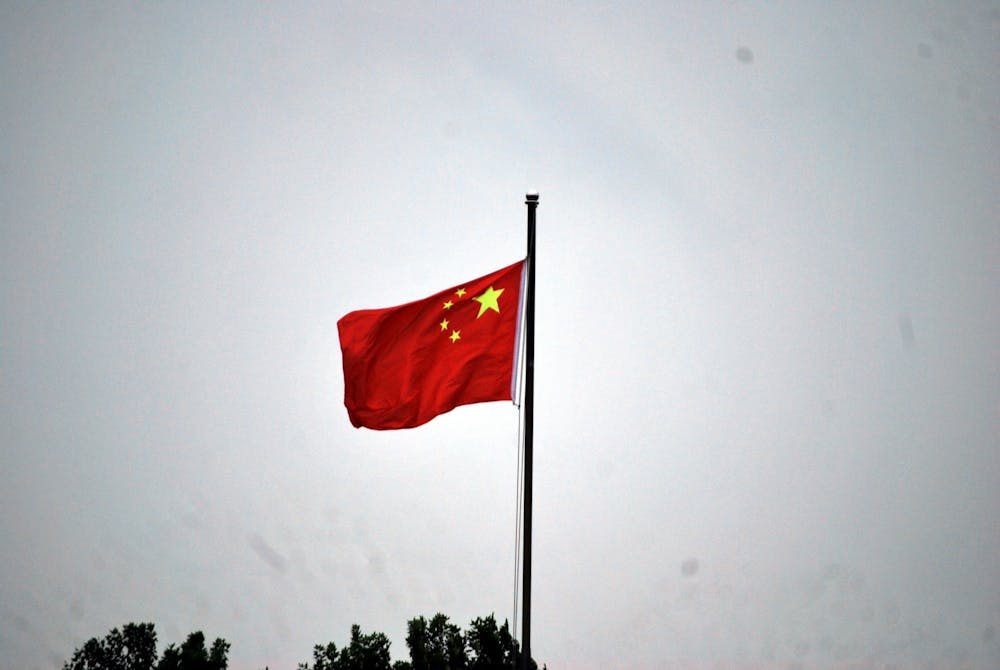In an announcement to students enrolled in POL 362: Chinese Politics, Rory Truex ’07, an assistant professor of politics, said he would “recommend that students who are currently residing in China should not take the course this year.”
“As you might expect, the course contains material that the Chinese government would find sensitive,” he told students on Friday, in a message obtained by The Daily Princetonian. “This, coupled with the fact that we are remote, and that China's new National Security Law has some sweeping provisions, means that we need to be a little more cautious this year.”
The national security law referenced in Truex’s email was enacted last June and gives Beijing “broad power” to punish political crimes, according to The New York Times. The law specifically outlaws perpetrators of subversion, separatism, terrorism, and collusion with foreign forces, but because these crimes are “vaguely defined,” some believe the law could be widely applied to curtail speech and writing critical of the government.
“This isn’t a ban on Chinese students taking the course,” Truex clarified in an interview with the ‘Prince.’ “This is a recommendation [based on] my assessment of the situation.”
Truex explained that since the course “includes material that is banned in China,” he didn’t “want anyone to feel that they were in a position where they had to access banned material in order to succeed in my course.”
“We’re going to be talking about Tiananmen Square, the cultural revolution ... about Xi Jinping and repression, and so forth,” he explained. “A lot of the material is from Western sources and websites that are formally banned in China.”
He also stressed that the recommendation came from him alone — not the University or the politics department — and falls under “faculty independence and purview.”
Still, Alan Patten, the chair of the politics department, told the ‘Prince’ “the Department supports Truex’s recommendation to his students on this matter.”
“It is an unusual recommendation, and I know that Professor Truex has not made it lightly or hastily,” Patten wrote in an email. “Given government censorship in China, students might have difficulty accessing some of the course materials, or might find themselves in trouble with the authorities if they do access those materials.”
A University spokesperson declined to comment on whether the institution agrees with Truex’s recommendation.
According to the course syllabus, a number of additional measures will be taken to protect those enrolled. Students will not be permitted to record lectures or precepts, all written assignments will be submitted for blind grading without students’ names to preserve anonymity, and students’ faces will be edited out of lecture recordings. Additionally, “students may choose to opt out of discussion in a given precept meeting if they view the material as too sensitive.”
Many of these policies are in line with recommendations Truex and four co-authors made in an August China File piece titled “How to Teach China This Fall.”

In August, The Wall Street Journal reported that professors on several American college campuses have adjusted their class rules as a result of the national security law to “try to shield students and faculty from prosecution.” Fears of such prosecution were compounded by the pandemic forcing classes to move online: academics believe that video classes could be intercepted, recorded, and “end up in the hands of Chinese authorities,” according to the Journal.
Harvard Business School Professor Meg Rithmire, a co-author of the China File piece, told the ‘Prince’ she supports Truex on this matter.
“I can assure you he is motivated entirely by a desire to protect his students and is a leader in our field on these issues,” Rithmire wrote.
In the message to his 94-student class, sent via Canvas, Truex encouraged anyone already enrolled in the course who will be living in China to reach out to him directly. Thus far, he said, nobody has.
“If they did, we would talk about different options ... including taking the course next year when it would be in person, or maybe doing an individual study with me,” Truex said. “I don’t want to shortchange people’s education, and I want to make sure people have access to this opportunity.”
One teaching assistant for the course, who spoke to the ‘Prince’ under the condition of anonymity, commended Truex for his sensitivity on this issue.
“I think it is very thoughtful for Professor Truex to spend so much time talking to Chinese students individually to see how they can work together to figure out a solution that is best for the student,” the TA said.
Truex has previously spoken out about the importance of preserving academic freedom in the classroom in spite of the national security law. He told the ‘Prince’ that the content of his course has “not changed at all” due to the law. Excluding certain topics from the curriculum is to Truex, in itself, a form of concession.
“If we, as a Chinese teaching community, out of fear stop teaching things like Tiananmen or Xinjiang or whatever sensitive topic the Chinese government doesn’t want us talking about, if we cave, then we’ve lost,” Truex told the Journal in August.
Head News Editor Caitlin Limestahl contributed reporting.








